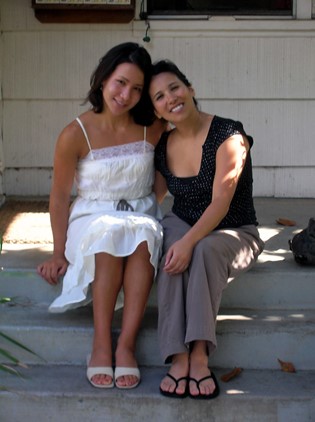Separate Sisters Are Secure Soulmates

“Gwen is my true soulmate now,” said a beaming thirty-nine-year-old identical twin patient whom I’ll call Clarise. While this sentiment is taken for granted in many twin relationships, my client’s declaration was the outcome of many months of work and a well-earned triumph.
Clarise found me via my website after attempting to work out her estrangement from her twin sister, Gwen, with previous therapists who left her feeling misunderstood and lost. Clarise felt bereft about lacking a relationship with Gwen for more than twenty years. Clarise thought about Gwen constantly and missed her companionship, love, and shared memories. Clarise could not understand why her twin suddenly and inexplicably cut her off. She groped for plausible explanations but could not find any justifiable reasons for this calamitous outcome.
As Clarise and I worked together and focused on her childhood twin connection, we reconstructed how much she relied on Gwen for safety and well-being. Clarise often recalled the soothing sensation she enjoyed while sleeping back to back with Gwen. Both sisters were traumatized by living in a household rife with abuse and blatant favoritism toward their older siblings.
During their high school years, Gwen pulled away from Clarise, who experienced profound grief that she could not recover from prior to therapy with me. Early in her treatment, Clarise declared, “I don’t do sadness.” As a result of this mindset, her primary relationships were characterized by unmitigated rage, disappointment, and victimization. She married a man who reminded her of her mother. She acknowledged that the contentious marital atmosphere, replete with yelling and physical violence, felt familiar—like home. The marriage was fraught with emotional and physical abuse that Clarise unconsciously fueled with rage and vindictiveness. As a parent, she adopted the role of a problem solver who fixed any and all issues with quick, simplistic solutions. She lacked awareness of others’ feelings and thoughts, much less her own.
Clarise’s personal journey to self-awareness ushered in a healthier way to connect with loved ones, especially her twin. So, when Clarise shared how much she treasures Gwen being her soulmate again, that pronouncement came from a place of utter authenticity and joy. Clarise could not appreciate her twin’s needs and feelings until she recognized and took responsibility for her own emotions. Moreover, she made tremendous strides toward accepting the differences between Gwen and herself. These efforts entailed extensive soul searching and painful recognition of Gwen’s longing for separateness and individuality. In my opinion, your twin can be your soulmate if both siblings feel successfully individuated.
Image courtesy of Peyri Herrera (CC BY-ND 2.0)


“In my opinion, your twin can be your soulmate if both siblings feel successfully individuated.”
From my experience, this last sentence can’t be emphasized enough. Unless both members of a twin pair develop distinct and separate lives, there will most likely be an unhealthy push-pull dynamic, with one twin too dependent on the other — and the other feeling too depended upon. The natural outcome is a growing resentment for both. The ‘too dependent’ twin feels confused, hurt and rejected, while the ‘too depended upon’ twin feels suffocated and burdened as he/she tries to establish a clear and distinct identity. This mutual resentment has — and will continue to have — a corrosive effect on the relationship — unless both twins individuate and move out into the world, and establish their own distinct identities. If the two lives develop in this manner, then a truly authentic relationship — and a really special one — is possible. If both stay enmeshed, this ‘special’ bond will not only be elusive — but quite to the contrary, an ongoing source of division.